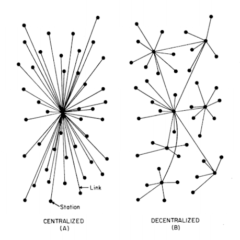Julia Lovell, 2018
Lovell unfolds an intellectual history of the impact Maoism has had on global politics, thought, and the civilizational world order. Sensationally and inquisitively written, she argues that Maoism has played a far greater role in past decades up until today than many western academics give it credit; and castigates commentators that fail to appreciate the fundamentally socialist politics that China, now one of the biggest players on the world stage, has nourished. Xi Jinping is leading a Maoist revival, and in contrary to Fukuyaman expectations, the co-optation of market economics and the globalist system by the Chinese state has only led to its ideological roots becoming more entrenched. Few appreciate the depth of intellectual antagonisms between the West and potential rivals thanks to the ignorance of Maoist influence by critics outside of Chinese borders.
Lovell’s books is packed with quirky facts that enliven a highly prescient academic discussion. She discusses how Chinese statesmen furnished Simone de Beauvoir’s room with a double bed of pink silk sheets, and how the training of students like the man that became Pol Pot had an irreversible, and fatal effect on global history. She touches upon the Shining Path and the global agenda that China has set itself, characterising Xi’s governance as equal parts of near-imperialism and unpredictable generosity. Particularly of note to historic leadership is the land donations to Kim-Il-Sung, and the gifting of strips of land on the Chinese-Indian border to the latter should the Communist party assent to power there – land which was fought over bitterly in the 1960s.
Lovell does, however, acknowledge that international engagement with the Chinese thought of the twentieth century is often misaligned with its original praxis and orientation. She looks to Nepal, where the rural classes became those that were purged and the very intellectual urban elite Mao sought to admonish retained communistic power. Prescient examples also arise from Peru.
Lovell ultimately takes an exterior stance to the issue of Maoism. She gives support, and according to Thornton, would agree with the notion that no matter the ideological core of Maoism, and Mao’s rejection of –isms and ideology, his thought and practice has nevertheless transmuted itself into a world-shaking concreteness, supporting the thesis that Maoism does in fact exist.
